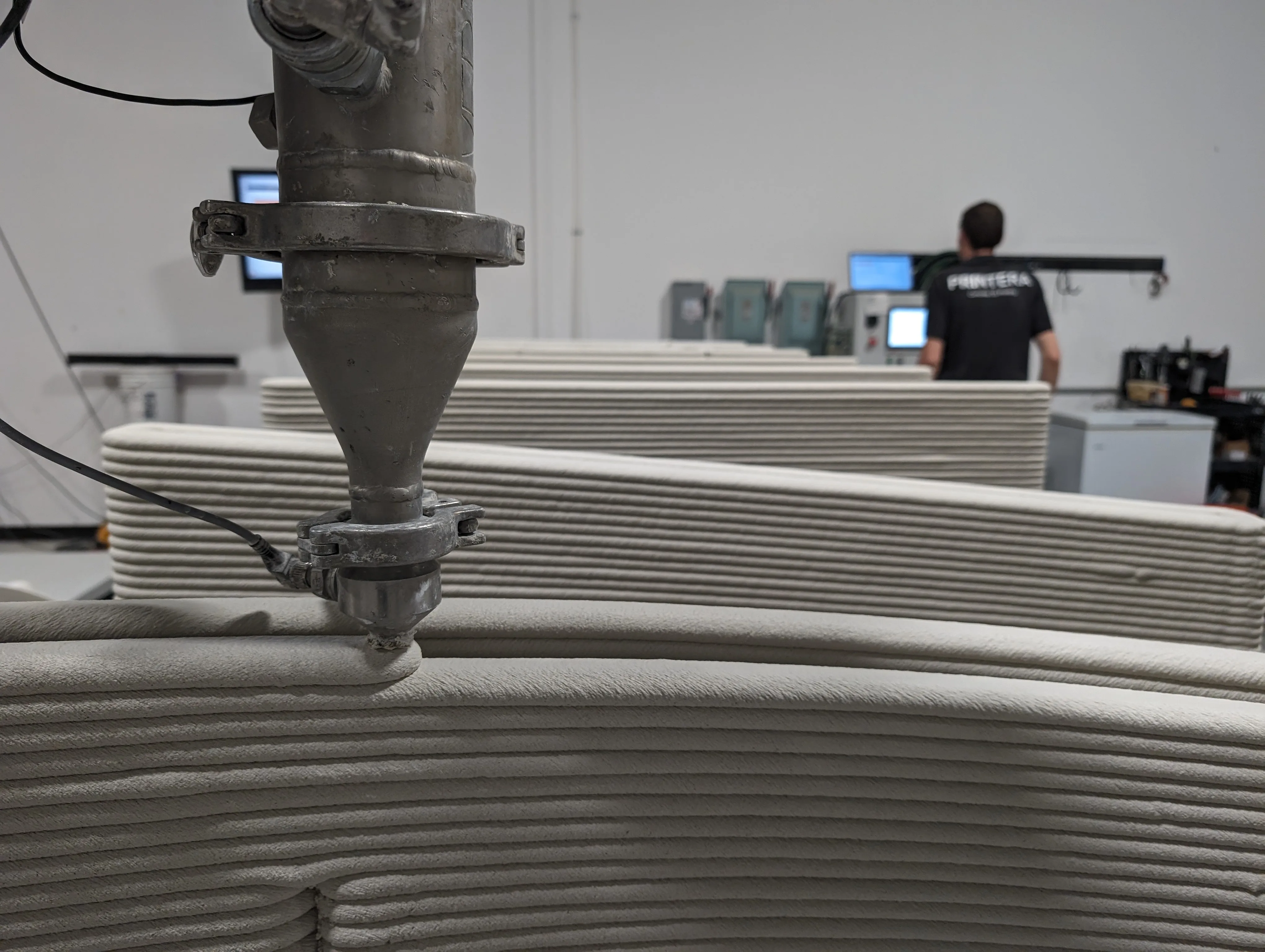
Why Landscape Architects Are Turning to 3D Concrete Printing
The world of landscape architecture is evolving fast. Clients want standout outdoor environments that balance beauty, sustainability, and performance. To meet those expectations, more professionals are turning to 3D concrete printing (3DCP) — a digital process that streamlines the creation of custom concrete elements for hardscapes, features, and accent pieces.
You might hear it described as a cement 3D printer, concrete 3D printer, or even a construction 3D printer. At Printera, we simply call it 3DCP. This additive manufacturing method lets us fabricate complex shapes from concrete without relying on molds or long lead times. For landscape architects, that opens a new set of creative tools — and eliminates common delays and cost barriers.
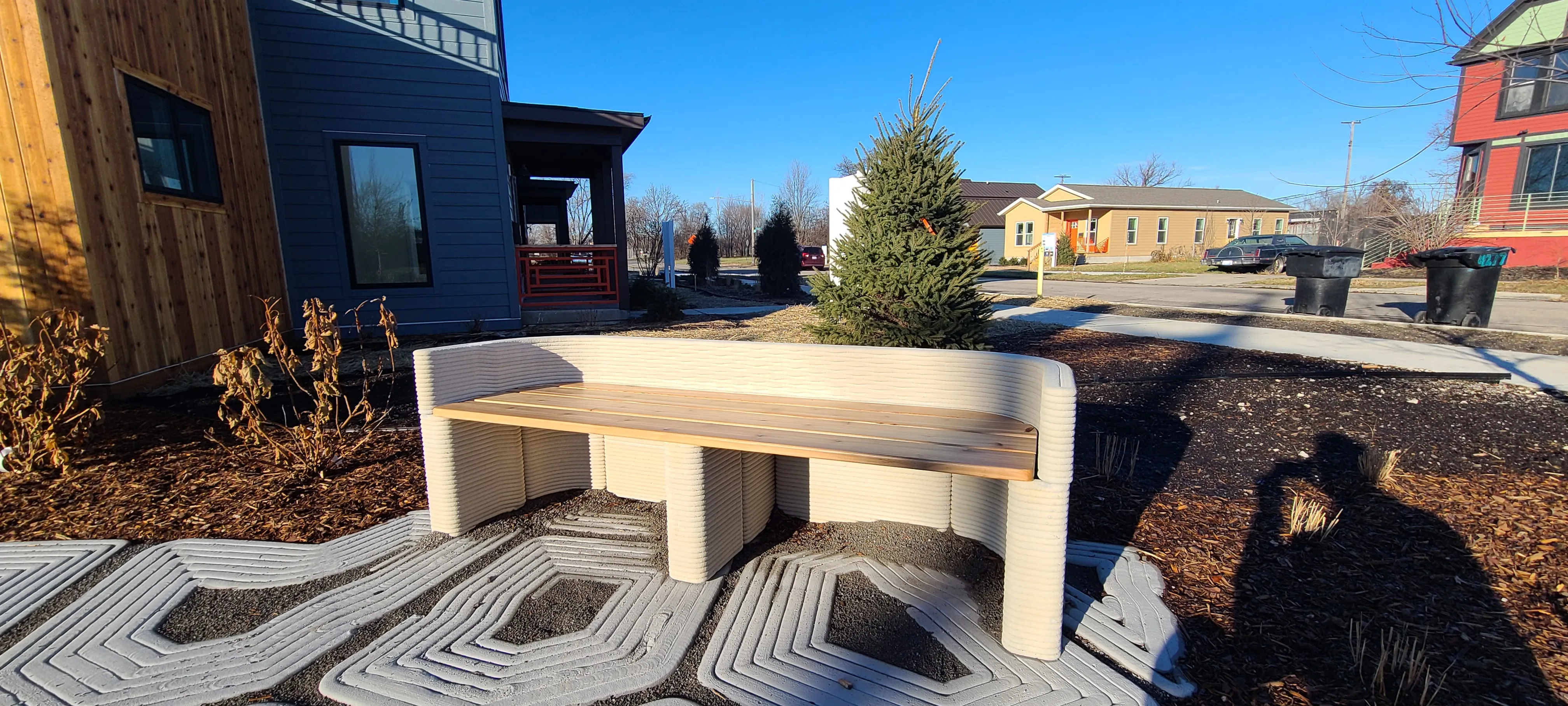
More Design Flexibility, Less Waste
3D concrete printing doesn’t just simplify construction — it enhances design. We’ve printed outdoor furniture, feature walls, planter systems, signage, and custom architectural elements that would be difficult or cost-prohibitive to create using traditional methods.
Because there are no mold constraints, the forms can include curves, tapered profiles, integrated textures, and branding details without additional setup. It’s a clean, efficient way to realize high-design ideas in durable concrete.
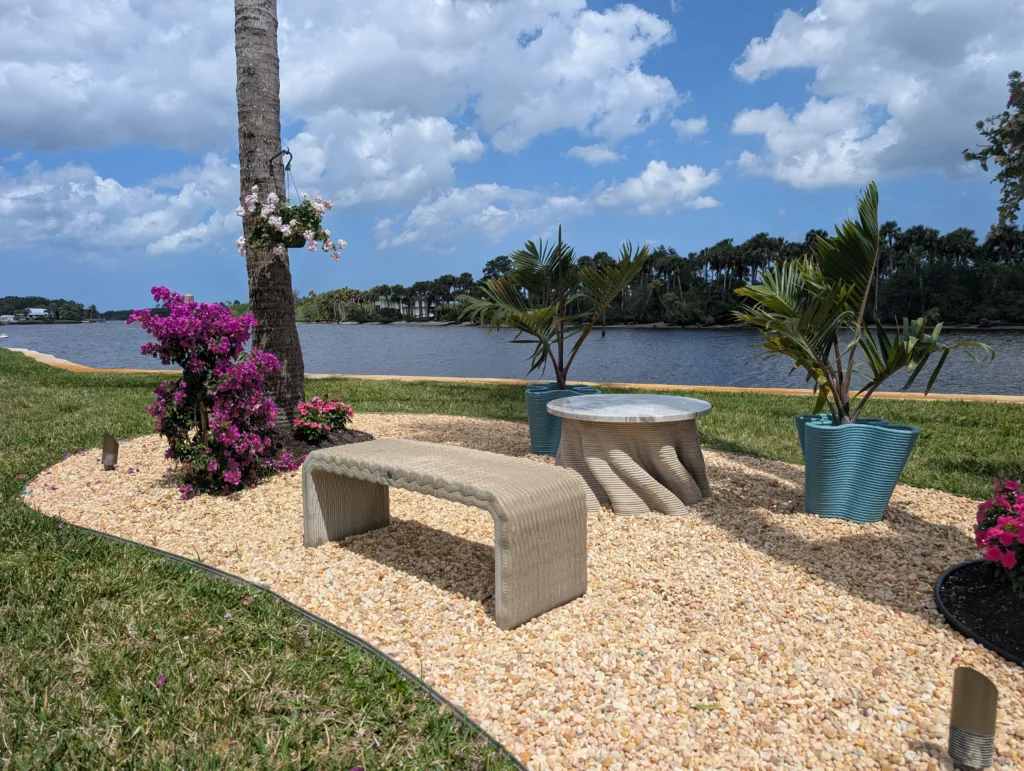
Faster Project Timelines with 3D Concrete Printing
Since we produce all prints at our Florida facility using a robotic arm printer, fabrication and site prep can happen in parallel. We call this approach Pre-Printed — meaning the product arrives ready for reinforcement or installation, minimizing delays and reducing onsite labor.
This makes 3DCP a great option when your schedule is tight or your client wants to see quick progress. Whether you’re sourcing a single signature element or coordinating a large set of concrete features, we work with you to hit key deadlines.
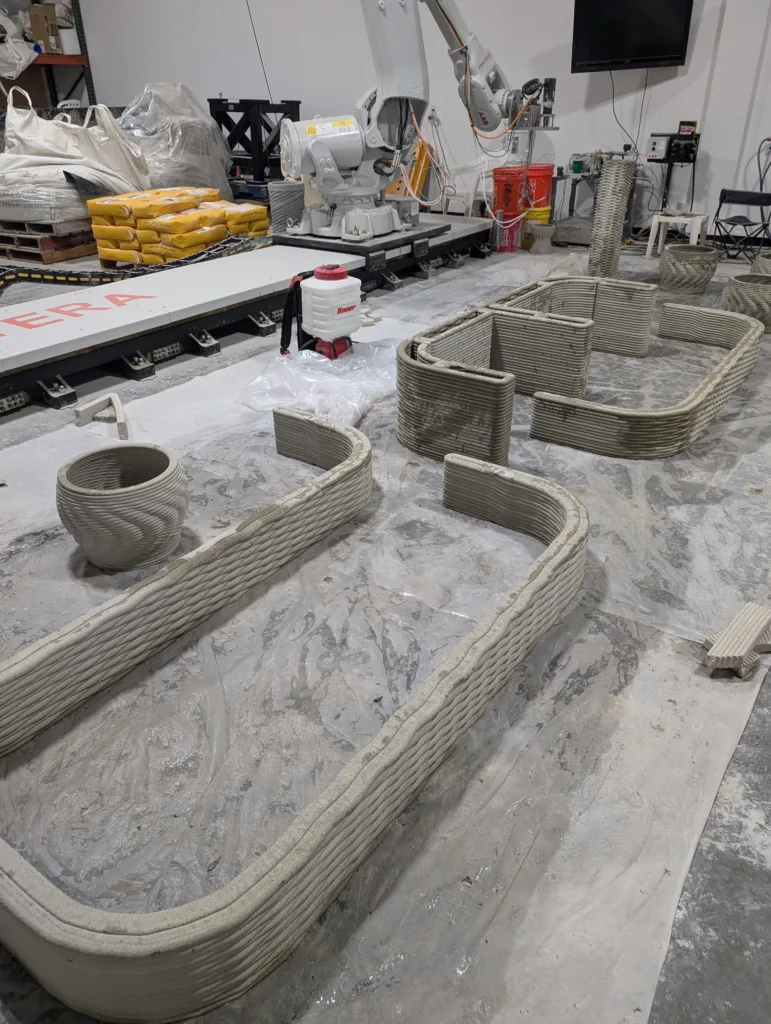
Designed to Last
The pieces we produce don’t just look good — they’re made to endure. Our printing process uses high-strength concrete mixes that can withstand the demands of public space, weather, and long-term use. These products don’t require stucco or smoothing finishes to look polished. Their printed texture becomes part of the design.
If color is needed, we can collaborate on paint-ready finishes, or work with coatings and sealants selected by your spec team. For added sustainability, we also offer carbon-sequestering material options, making each project a little more climate-conscious.
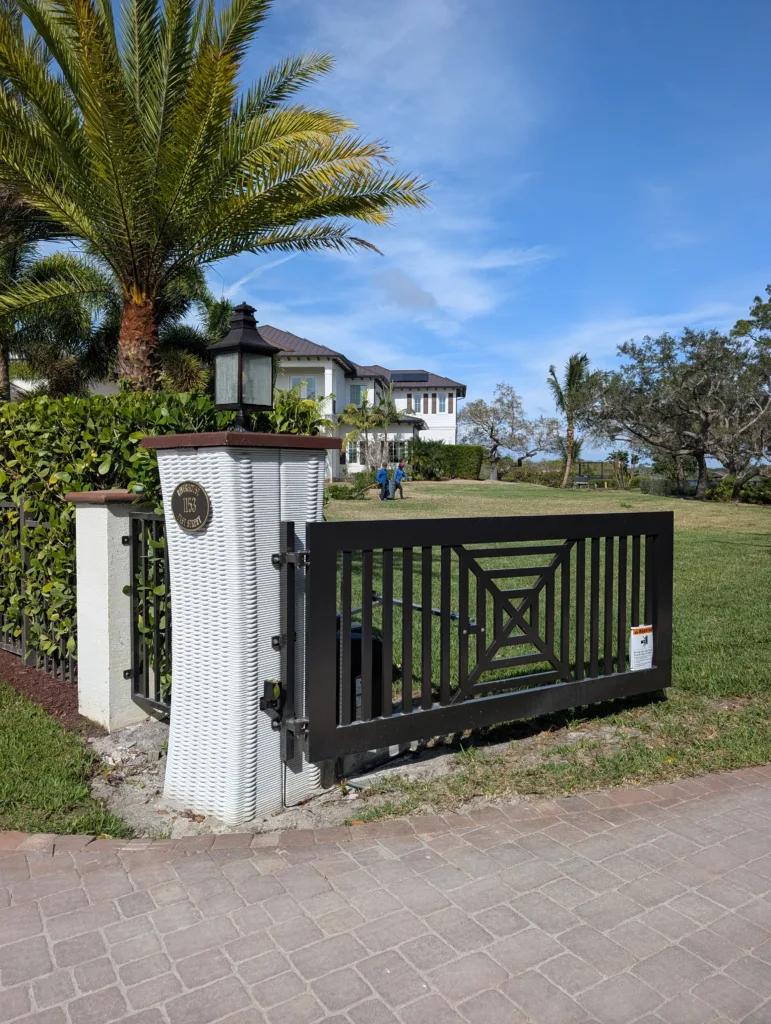
A New Tool for Landscape Architects
3DCP won’t replace traditional concrete — but it expands what’s possible. It gives you more control over the outcome, more confidence in project schedules, and more flexibility to meet your client’s vision.
If you’re looking for a partner that can turn your Revit or Rhino model into a printed concrete feature, Printera is ready to collaborate. From shop drawings to mockups, we help translate ideas into real-world concrete.
Let’s design something worth talking about.